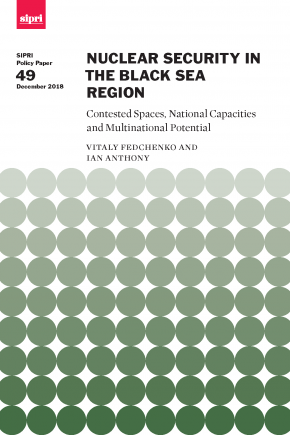Nuclear Security in the Black Sea Region: Contested Spaces, National Capacities and Multinational Potential
Some of the most significant known cases of illicit trafficking of nuclear materials have taken place in the wider Black Sea region. Recent events in the region—in particular in Ukraine—make it important to understand whether nuclear security risks have worsened or multiplied as a consequence.
This SIPRI Policy Paper offers a comprehensive overview of perceptions of nuclear security risks in the wider Black Sea region, along with a detailed assessment of how the level and nature of those risks have changed in Ukraine since 2014. The authors examine the measures that the states in the region are taking to manage nuclear security risk today and consider what steps might be taken to enhance the effectiveness of their actions. They pay special attention to risks arising from contested spaces, where regulations are impossible to implement and where it is difficult to maintain awareness of the changing conditions on the ground.
1. Introduction
2. The evolution of nuclear security in the Black Sea region
3. Nuclear security in Ukraine since 2014
4. Nuclear security threats posed by contested spaces
5. Nuclear security cooperation in the Black Sea region
6. Conclusions


